Undergraduate Courses
The descriptions below are intended to give students a more complete picture of our course content but do not replace those found in the online catalog. More complete information is available in the example syllabi which come from previous years that classes were taught. Because course content evolves over time and there may be a number of instructors for one course the syllabi can only be thought of as a general guide to class content. If you choose to take a class the syllabus and content could be different.
Course offerings and schedule is dependent on professors and MAY CHANGE. Please keep up to date with your TTU email, Goddard TV's, and bulletin board to learn about upcoming course offerings.
NRM 1300: Environmental Science as a Social Pursuit (3)(top)

Environmental issues have both scientific and social elements. Aimed at non-majors, this class helps students become educated, critical thinkers in a multi-media environment saturated with conflicting perspectives on global environmental problems. Students will be exposed to scientific data, learn to assess them critically, and apply them to natural resource decisions receiving national and international attention in light of differing local perspectives. Decision making processes in our society and the ethical implications of those decisions will also be addressed.
Prerequisites: None [Fills Core Curriculum for Social and Behavioral Sciences]
Offered: Fall, Spring, Summer
NRM 1401: Introduction to Natural Resources Management (4) (top)

Aimed at non-majors, this course provides a broad introduction to natural resource problems and management. With focus on what natural resources are, our society's dependence on their sustainable use, who manages them, and the skills that natural resources managers use. Because NRM is a field-based subject, the lab component is comprised of field trips. These give students hands-on experience dealing with real management problems at local sites.[Field Trips Required]
Prerequisites: None [Partially fulfills core Life and Physical Sciences requirement]
Offered: Fall, Spring, Summer
NRM 2305: Introduction to Freshwater Ecology and Fisheries (3) (top)

Aquatic systems are an important part of the environment and all life is dependent on water. Understanding the properties and ecology of water is imperative for protection and management of aquatic systems. Students will learn the basic properties of water and how it interacts with abiotic (nonliving) and biotic (living) systems. Included is a survey of freshwater aquatic organisms (plants, invertebrates & vertebrates), and ecological principals important in such systems.
Prerequisites: None
Offered: Fall, Spring
NRM 2307: Diversity of Life (3)(top)

Students will explore biodiversity through the principles of genetics and evolution as they relate to conservation and management of natural resources. This course will provide students a framework for understanding inbreeding and other genetics problems facing conservation biologists and natural resource professionals. We will address these concepts at scales ranging from the level of the genes to the level of the biosphere.
Prerequisites: None
Offered: Spring & Fall
NRM 2406: Wildlife Anatomy and Physiology (4)(top)

The goal of this course is to provide the student an introductory knowledge of the anatomy and physiology of wild animals. The form and function of all major vertebrate systems are addressed in a comparative way. This allows students to better understand how the anatomical or physiological characteristics of various groups limit or allow their exploitation of different habitat types. This knowledge base will allow students to examine and expand their understanding of interactions between animals and their environment. [Non-credit Lab Required]
Prerequisites: None
Offered: Fall
NRM 3300: Geographic Information Systems for Natural Resources Management (3) (top)
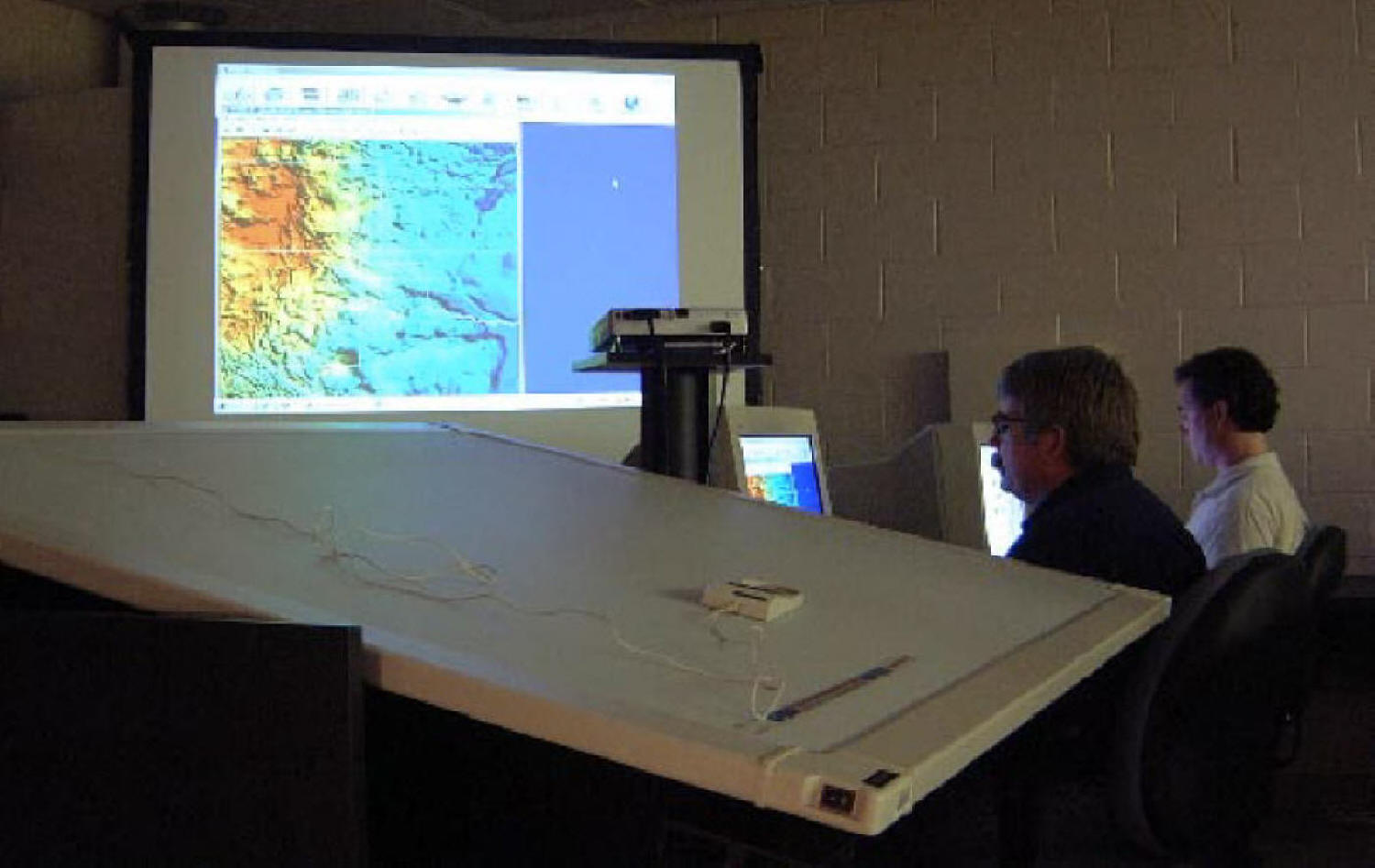
This course provides students with an introduction to the principles of geographic information systems and its applications for natural resources mapping and monitoring.
Prerequisites: None
Offered: Fall, Spring, Summer
NRM 3301: Vegetation Inventory and Analysis (3) (top)
Techniques and methods for sampling and analyzing rangeland and vegetation.
Prerequisites: NRM 3202 and NRM 3203
Offered: Check with academic advisor
NRM 3302: Range Plant Ecology (3)(top)

This course will acquaint students with the basic concepts of plant ecology and their application at the species and community levels. The impact of and responses to individual environmental parameters, such as rainfall, humidity, soil quality, light intensity, fire regime and herbivory will be explored at the individual, population, and community levels. The course will cover global vegetation patterns, but focus on semi‐arid environments and rangelands.
Prerequisites: None
Offered: Fall
NRM 3303: Range Management Principles and Practices (3)(top)
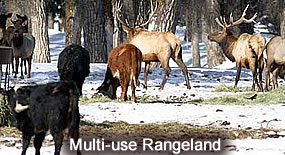
In this course students will learn the methods and tools used to manage rangelands ecosystems. Many of these rangelands are ranches traditionally used for cattle or other food production but increasingly serve as wildlife habitat or recreational areas. We will examine the integration of multiple uses in a rangeland ecosystem through the lenses of biological processes such as range plant physiology, community succession, and food & habitat selection by domestic and native herbivores. Sustainable management techniques will be emphasized. [Field Trips Required]
Prerequisites: Sophomore standing
Offered: Fall & Summer
NRM 3304: Principles of Range Management (3)(top)

This course presents an integrated theoretical background (drawn from a variety of disciplines) of the principles which inform management decisions made in any given rangeland. These include range plant physiology, plant community succession, herbivory and habitat selection, hydrology of surface waters, and range and wildlife animal nutrition and production. Students will gain the background necessary for a future course in management planning (i.e. developing ranch management or wildlife habitat management plans). [Field Trips Required]
Prerequisites: NRM 3403 (with C or better)
Offered: Spring
NRM 3306: Principles of Wildlife Management (3)(top)
Expands upon introductory concepts of wildlife management by focusing on the technique, approaches, and principles of wildlife management and wildlife population dynamics.
Prerequisites: NRM 1300 or NRM 1401 or NRM 2305.
Offered: Fall, Spring
NRM 3307: Principles of Conservation Science (3)(top)

Conservation biology is a relatively new discipline focusing on preservation of biodiversity with an emphasis on threatened species and habitats. Most often challenges to biodiversity come from human use or alteration of the environment. Therefore this field draws from a variety of disciplines including ecology and evolution but also economics, philosophy and the social sciences. This advanced course examines conservation biology both in theory and in practice by studying conservation problems of today and tomorrow.
Prerequisites: None
Offered: Fall, Summer
NRM 3308: Quantitative Methods in Natural Resources (3)(top)

This course will provide students with the tools to understand and interpret scientific findings in natural resource management that are expressed graphically or statistically. It is essential to understand these quantitative methods in order to make good management decisions. The course will include a review of quantitative methods used in species specific studies, measures of population structure/demographics, community structure analyses, and assessments of biodiversity.
Prerequisites: MATH 1330
Offered: Fall
NRM 3309: Restoration Ecology (3)(top)

This course covers the basic ecological theory and practice of the rapidly developing field of Restoration Ecology. Students completing this course will have a working understanding of the modern science of Restoration Ecology, its history and the theoretical and practical considerations in restoring native species. Current examples and case studies will be used to illustrate underlying principles that are the foundation for the field. Students will gain hands-on experience in restoring native species by helping to plan and implement ecological restoration projects.
Prerequisites: None.
Offered: Spring of even years
NRM 3311: Field Ecology (3)(top)
Provides a foundation in population and community ecology in a field setting and familiarizes students with all stages of the scientific process.

Prerequisites: None.
Offered: Summer, Llano River Field Station, Junction, TX
NRM 3314: Wildlife and Livestock Nutrition (3)(top)
Study of the nutritional relationship between the range resource and grazing/browsing herbivores.

Prerequisites: None.
Offered: Summer, online.
NRM 3323: Prescribed Burning (3)(top)

In this class students will acquire the skills needed to plan, implement and evaluate prescribed burns. In addition to learning the theory behind concerns like fuel loads, and factors that impact fire behavior the course includes field work where participants can learn tools of the trade, learn to measure weather, and operate pumps/engines. In addition they work with landowners to develop burn plans for actual plots of land in Texas. [Field Trips Required]
Prerequisites: NRM 3403 (C or better)
Offered: Spring
NRM 3325: Integrated Natural Resources Management Skills (3)(top)

In this class students will develop their communication skills which will be critical to getting and keeping a job in the field of Natural Resources Management. This class will introduce students to classic writings in the field of NRM, demonstrate how scientific understanding has changed over time, and develop skills in the generation, compilation, and dissemination of scientific information to other scientists, policymakers, and society. [Writing Intensive]
Prerequisites: NRM 1300 or NRM 1401 or NRM 2305 (C or better)
Offered: Fall, Spring, Summer
NRM 3403: Range, Forest, and Wetland Vegetation and Plant Identification in North America (4)(top)
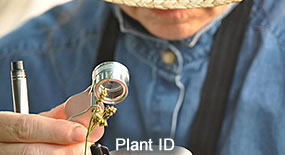
The goal of this class is to teach students to identify some of the major vegetation types, and their component plants, that occur in North America. Distinguishing characteristics of each vegetation type and component species will be presented and discussed. Students who successfully complete this course will be able to identify on a map and describe the major vegetation types of North America and be able to recognize and name dominant species.
Prerequisites: None
Offered: Fall & Summer
NRM 3407: Wildlife Management Techniques (4)(top)
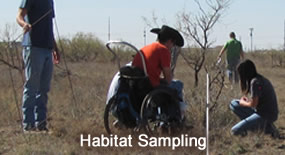
Students will learn hands-on techniques for plant inventory and terrestrial wildlife assessment. This course includes both lectures where students learn about various techniques and how and where to apply them and a weekly lab where students practice various wildlife and vegetation survey methods and collect data using these techniques. Students working in small groups will also summarize and graph the data they collect. Most of the laboratory experiences occur on a remnant of Native Rangeland that is managed by the department in Lubbock. [Non-credit Lab Required]
Prerequisites: Sophomore standing; C or better in NRM 1300 or 1401 or 2305
Offered: Fall; Summer in Junction
NRM 4000: Internship (top)

This is the class that students take if they are doing an internship for college credit. The number of credit hours will vary depending on the arrangements made with the faculty advisor and mentoring agency. [Faculty Advisor Consent & Supervision Required]
Prerequisites: Instructor consent
Offered: anytime
NRM 4001: Undergraduate Research (top)

This is the class that students take if they are doing undergraduate research with a faculty member for credit. The number of credit hours will vary depending on the arrangements made with the faculty mentor. [Faculty Mentor Consent & Supervision Required]
Prerequisites: Instructor consent
Offered: anytime
NRM 4100: Seminar (1)(top)
An organized discussion of current problems and research in range, wildlife, and fisheries management. May be repeated.
Prerequisites: Instructor consent
Offered: anytime
NRM 4301: Problems (Example - Forest and Rangeland Insect Diversity) (top)
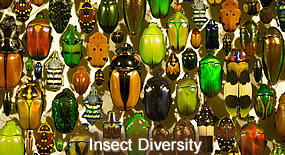
When faculty want to offer a class on a special problem or topic it is offered as 4301. Forest and Rangeland Insect Diversity is an example of a 4301 class. This intensive two-week course will focus on insect diversity in rangelands and forests of Texas. Students will learn family-level insect taxonomy and identification techniques. Additionally, students will learn common collection techniques, biodiversity assessment tools, and insect preservation protocols. A museum-grade labeled insect collection is a major component of this course.
Prerequisites: instructor consent
Offered: anytime
NRM 4302: Range Improvements (3)(top)
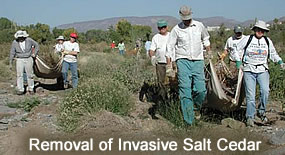
This course covers the principles and practices of enhancing the productivity of rangeland resources including range-wildlife habitat, water yield, livestock production, and aesthetics. Students will learn when and why improvement may be necessary, which tools are best for control of invasive native and non-native plant species, and the importance of fences and other structural improvements in managing range health. Restoration and establishment of native plant ecosystems and their importance in maintaining ecosystem services will be emphasized. [Field Trips Required]
Prerequisites: None
Offered: Spring, odd years
NRM 4303: Rangeland and Wildlife Analysis and Management Planning (3)(top)

This is a capstone course to give upper division students an opportunity to integrate, the ideas, concepts, and tools they have learned in their academic training to evaluate the potential of natural resources systems to sustain proposed uses and to write a management plan. Students will work in small groups to discuss, evaluate, and propose management solutions for local properties ranging from ranches to wastewater treatment facilities. Emphasis is placed on maintaining or enhancing the quality of resources like clean water while the site is used for the benefit of people. [Writing Intensive]
Prerequisites: NRM 3403 and 3407
Offered: Fall, Spring
NRM 4304: Fire Ecology and Management (3)(top)

This course will introduce students to the roles of natural and anthropogenic fire in ecosystems. The impacts of fire on animals, plants, soils, and climate are studied. Additionally, current issues and fire research are emphasized. Students will evaluate primary literature and critically analyze fire management. [Writing Intensive]
Prerequisites: C or better in NRM 3403.
Offered: Fall
NRM 4305: Big Game Ecology (3)(top)
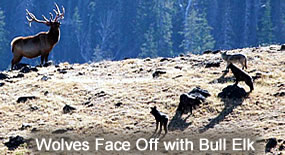
This class will review the basic principles and philosophy of modern wildlife management which find their roots in Aldo Leopold's classic book, Game Management. Students will learn how these principles are applied to various big game species and will gain an understanding of the basic natural history of North American big game species. Utilization of natural history information in the selection of the most the beneficial management techniques, and a survey of the techniques currently used in big game population management will be covered. [Field Trips Required]
Prerequisites: None
Offered: Fall, odd years
NRM 4306: Upland Game Ecology (3)(top)

The course provides students with an understanding of the basic morphological, physiological, and nutritional characteristics important to game bird ecology. It also covers current hypotheses concerning how anthropomorphic and ecological processes impact game bird populations. Detail is provided concerning the basic natural history of important North American upland game birds and techniques for management of their populations and habitat. A major goal of the course is to help students to learn to apply class information to real-life management or research situations. [Field Trips Required]
Prerequisites: C or better in 1401 or Instructor consent
Offered: Spring, Summer
NRM 4309: Range-Wildlife Habitat Management (3)(top)

This course provides a study of wildlife habitats based on major vegetation types and the problems involved with management of them. Emphasis is placed upon how other resource demands can be integrated with wildlife management needs. This upper division writing intensive course teaches students to integrate the concepts and principles from introductory classes. The course lets students see principles applied and learn to apply them to natural resources management problems. [Writing Intensive] [Suggested for NRM minor] [Field Trips Required]
Prerequisites: C or better in NRM 3304 or NRM 3403, or consent of instructor
Offered: Fall
NRM 4310: Principles of Waterfowl Management (3)(top)

Students will explore the basic biology of migrating and resident waterfowl and their ecological interactions with other species in an ecosystem. We will focus on the sustainable use and management of waterfowl as a natural resource as well as their importance in maintaining the health of the freshwater ecosystems of which they are a part. [Field Trips Required]
Prerequisites: C or better in NRM 1300 or NRM 2305
Offered: Spring, odd years
NRM 4311: Wildlife Law (3)(top)
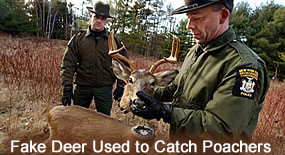
This class examines the body of law governing the taking and possession of wild animals, wildlife parts, and goods made from wildlife. It focuses on the doctrine of state ownership of wildlife and the regulatory tools used by the states and the federal government to conserve an ample supply of wildlife while providing equitable opportunities for the public to share in the privileges of ownership. This class is primarily aimed at those wanting to be Game Wardens but will also be of interest to other students interested in sustainable harvest of animals.
Prerequisites: C or better in NRM 1300 or NRM 1401 or NRM 2305
Offered: Fall
NRM 4314: Watershed Planning (3)(top)
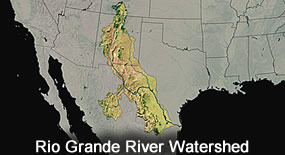
All drainage inside a watershed can impact habitats downstream. This connectivity means watersheds are often managed as a unit. The course will cover the impact of land use practices on ecosystem services, including water quantity and quality. Management techniques to mitigate anthropogenic changes in water flow in urban and rural areas will be emphasized and practices involved in stream restoration will be discussed. Practical difficulties inherent in managing a system with multiple stakeholders/land owners and examples of success will also be covered.
Prerequisites: None
Offered: Fall & Summer
NRM 4315: Spatial Analysis in Natural Resource Management (3)(top)
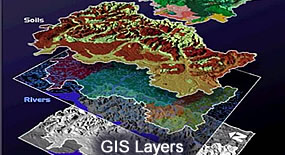
This class will give students an understanding of the theoretical and practical concerns involved in creating a geographic information system (GIS) map including the use of global positioning systems (GPS). The application of this tool to documenting the presence and extent of natural resources, planning for their use, and management decisions which can be based on the information provided will be covered. Students will become familiar with software used to create GIS maps by creating one themselves as a class project.
Prerequisites: None
Offered: Spring
NRM 4320: Natural Resource Policy (3) (top)

This class provides a historical and theoretical overview of the application of governing laws and related policies to the management of natural resources. A review of major pieces of legislation that govern natural resource use and agencies that implement them will be included. The importance, development, and application of policies to private and public lands will be covered. The goal of this class is to prepare students to participate in the process of making and meeting natural resource use goals that result in sound conservation and management outcomes.
Prerequisites: C or better in NRM 1300 or NRM 2305
Offered: Spring
NRM 4322: Nongame Ecology and Management (3)(top)
Ecological approach to nongame wildlife population management. Public policies, socioeconomic factors, population dynamics, and species-at-risk issues are examined.
Prerequisites: C or better in NRM 1401
Offered: Fall
NRM 4324: Tropical Ecology and Conservation (3)(top)

This class gives students firsthand experience with the challenges of accomplishing conservation goals in tropical ecosystems in developing countries. The class is taught abroad in a country struggling with meeting the everyday needs of its people for clean water, sufficient food, and basic education while also trying to conserve tropical ecosystems. Understanding local culture and history are emphasized, and students from the host country may join parts of the trip, providing a unique perspective on local culture. [Field Trips Required]
Prerequisites: None
Offered: Summer
NRM 4335: Freshwater Bioassessment (3)(top)

Students will gain a practical and theoretical understanding of structure and functional integrity of freshwater ecosystems. Use of species composition in a waterbody, including macroinvertebrates, fish, and plants, to perform a bioassessment or evaluation of the health of the system will be covered. A comparison of methods developed in the last 20 years by natural resources agencies charged with assessing the integrity of aquatic ecosystems will be included. Students will also get hands-on experience in sampling techniques on which bioassessments are based.
Prerequisites: C or better in NRM 2305. No freshman.
Offered: Spring
NRM 4340: Urban Ecology and Human Dimensions (3)(top)

An introduction to urban ecology, human dimensions of natural resources, and urban wildlife management. Case studies, policies, socioeconomic factors, and ecosystem function are examined.
Prerequisites: C or better in NRM 1300 or NRM 2305 or NRM 1401, or instructor consent.
Offered: Spring
NRM 4401: Fisheries Conservation and Management (4)(top)
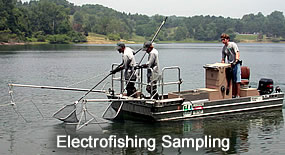
This course presents a theoretical and practical introduction to the conservation and management of aquatic resources. It includes a review of ecological principles important in aquatic ecosystems, the importance of healthy ecosystems in maintaining fisheries, methods for quantifying fish population structure and health, community level management of aquatic systems, and impacts of invasive species. Students will get hands-on experience with sampling techniques learned in class and produce natural resource agency style reports.[Writing Intensive] [Non-credit Lab Required]
Prerequisites: ZOOL 4410, C or better in NRM 2305 and either AAEC 2401, MATH 2300
or C or better in NRM 3308, or instructor consent
Offered: Fall
NRM 4403: Aerial Photo Interpretation in Natural Resource Management (4)(top)

Students will learn the principles of photogrammetry or interpretation of aerial photos. Aerial photographs are used in identification and quantification of habitat types when assessing management questions and often form the basis for layers in geographic information system (GIS) maps. Students will get experience with GIS software and learn a variety of techniques including the use of global positioning systems to normalize aerial photos. Application of these techniques to management of renewable natural resources will be emphasized. [Non-credit Lab Required]
Prerequisites: None
Offered: Fall, Spring, Summer
NRM 4408: Wildlife Population Dynamics and Analysis (4)(top)
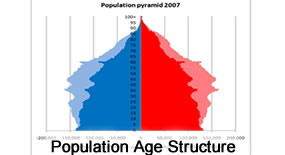
Students will gain an understanding of intrinsic characteristics of wildlife populations and how these factors affect population growth. Detail is provided for both modern and historical techniques for estimating population growth rate, animal survival rate, reproductive success, and animal density. Finally, population growth models and sensitivity analysis are covered. A major goal of the course is to help students learn to apply class information to real-life management or research situations.[Writing Intensive] [Non-credit Lab Required]
Prerequisites: C or better in NRM 1401, NRM 3407, and NRM 3308
Offered: Spring
Department of Natural Resources Management
-
Address
Goddard Building, Texas Tech University, Box 42125, Lubbock TX 79409 -
Phone
806.742.2841 -
Email
nrm@ttu.edu




